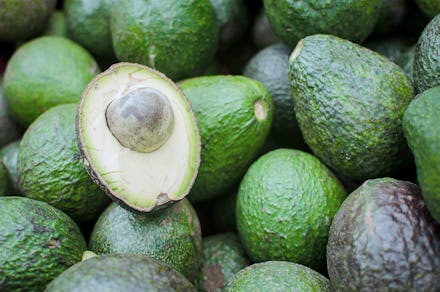Climate Change Could Take Away Your Favorite Foods — And Much More

Unfazed by increasing temperatures and rising sea levels? Unnerved by a rapid rise in pathogens? Uninterested in the growing frequency of extreme weather events such as cyclones, floods, fires and droughts? Perhaps for some, the most compelling reason to combat climate change will be their stomachs.
Increasing weather volatility or other long-term changes in global weather patterns, including any changes associated with global climate change, could have a significant impact on the price or availability of some of our ingredients. Any increase in the prices of the ingredients most critical to our menu, such as chicken, beef, cheese, avocados, beans, rice, tomatoes and pork, would adversely affect our operating results. Alternatively, in the event of cost increases with respect to one or more of our raw ingredients, we may choose to temporarily suspend serving menu items, such as guacamole or one or more of our salsas, rather than paying the increased cost for the ingredients.
The report also states that climate change could "also have an adverse impact on our brand." Chipotle's brand is based heavily on sourcing produce from organic, local and sustainable sources, so it's susceptible to the influence of climate shifts. According to Think Progress, Chipotle uses 97,000 pounds of avocado every day to make its guacamole.
But for now, fear not about an impending guacamole crisis — at the moment the avocado industry is doing just fine. Although the individual sizes of this year's avocados have shrunk, the overall harvest has increased. Chipotle spokesperson Chris Arnold told Huffington Post, "The sky is not falling. We are required to disclose issues that could present risks to our business like supply constraints or higher food costs — and we are very thorough in making those disclosures."
Image Credit: Data from FAOSTAT
While the availability of your favorite condiment at local fast food outlets might seem like a spurious or privileged issue, this certainly is not: climate change will significantly affect global food security. Although some regions may benefit from rising temperatures, many crops are sensitive to heatwaves and overall production could be reduced by as much as 2% per decade for the rest of this century, according to a report by the UN's Intergovernmental Panel on Climate Change. Not good when you compare this figure to the predicted increase of 14% per decade in demand for food from a global population expected to rise to 10 billion by 2050.
Image Credit: PBL
Climate change and the availability of food affects everyone, particularly the global poor. So at the end of the day, there are plenty of good reasons for all of us to act on our stomachs.